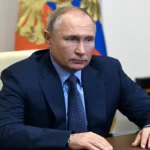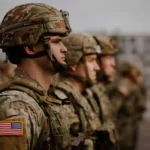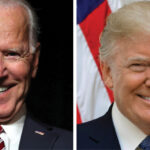The exceedingly liberal American media was, ahead of the 2016 presidential election in the country, convinced that Donald Trump was a farce and bound for a certain defeat in the polls. Hillary Clinton’s projections to win by almost all the distinguished pollsters were influenced by the patronising media coverage and public opinion stirred by her benign personality and campaign, something her Republican opponent lacked in the mainstream media.
Ms Clinton’s electoral loss to the year’s most maligned newsmaker, even though various forecasters put her chances of winning as high as 99 per cent, was described as “an American tragedy” by the cerebral editor of The New Yorker magazine, David Remnick, who wrote a cynical Op-Ed to scare his fellow countrymen to perceive his ascension to the Office of the President as “a sickening event in the history of the United States and liberal democracy” because to him—and, of course, the whole of liberal media establishment—the new president was “a con who did little to spurn endorsement by forces of xenophobia and white supremacy.”
I spent over three months in the United States in the first year of Trump’s government and shared spaces with American citizens in all the cities I visited, especially in New Orleans, Iowa City, New York City, Washington DC, and Chicago. None of the known and strange faces with whom I discussed American politics was of the opinion that contradicted Mr Remnick’s narrative of Trump’s coming as a national tragedy. I never met a Trump supporter in all the social circles I mingled with throughout my stay, and it got me thinking.
I was in the wrong circle, the liberal kind, and among those quick to interrogate ideas and initiate a channel for cancelling or de-platforming characters that fit the socially undesirable profile of “Trump supporters,” and I got why anyone likely to identify as a Trump supporter must’ve chosen silence. What Trump marketed, from his America First foreign policy to his pledges to undo some of his successors’ pro-immigrant programmes, was a world of white nationalism and the journalists he demonised were quicker-witted in asking him to call out violent rightwing groups, some of whom he famously described as “very fine people” after an anti-fascism campaign.
- Tinubu, Wike’s camps meet to finalise deal on 2023
- Recapitalisation, other major events that shaped pension sector in 2022
As Nigeria prepares for the polls next year, I consider America’s 2016 polling misfires a guidebook for the educated Nigerians who seem to have confused the candidates’ social media visibility with electoral advantage in the election, and it’s already tempting to rely on opinions shared in both traditional and new media channels for forecasts amidst the waves of toxic exchanges across political camps. The groups with the vocal firepower to bully or blackmail the other seem to assume they are the favourite, and each seems to have underestimated the political strongholds for which each presidential candidate performs.
Trump didn’t perform for the entire America. He chose White Americans, specifically those with no college degrees, and they became uncritical foot-soldiers of the racist and xenophobic world he imagined and sold so much so that the supporters were incited by his tweet to converge on Washington DC to start a riot after he lost his re-election bid.
We must be wary of making the media the lens for predicting the outcome of Nigeria’s next election even with certain politicians basking in such echo chambers and social media influencers intoxicated by thousands of followers believing they possess the power to influence the electoral behaviour of the suya vendors in Zaria, the palm-wine tappers in Mbaise, the cloth-weavers in Iseyin and the bead-makers in Bida.
The elephants in our political rooms aren’t the vuvuzelas online, but the ethnic, regional, and religious strongholds of each candidate. They determine the outcome of the election and their size matters. The appeal to forego such fault-lines is noble for a country wrecked by the conspiracy of no specific stronghold. Nigeria is a mistake of an amorphous elite with members from all strongholds. But this elite doesn’t give a damn about the profound essays and views in our newspapers or on our TVs.
The media war around who becomes Nigeria’s next president has become a labelling contest, and this favours the elite. The crude invectives and bigotry dispensed by all political camps exert only a minor impact on the outcome of the elections. The elites in all camps are securing their bases offline. This illusion that media viability makes one the favourite must’ve sparked the outrage last month when former Vice President Atiku Abubakar, in his Arise TV Interview, asserted that 90% of northerners aren’t on social media in countering the question that Peter Obi’s social media popularity was a threat to his ambition.
Even though Atiku hasn’t openly weaponised his strongholds, he’s not unaware that his prime stronghold is the North, especially the Muslim North, and his response to the assumed social media threat isn’t exaggerated. The data-gathering site, Statista, estimated that Nigeria has about 33 million active social media users, and even if we assume that 40 per cent of such a number is from the North, that’s still less than the population of a single of the region’s 19 states.
But the low internet penetration in the North doesn’t imply a lack of access to information. Radio is the dominant news platform in Nigeria, and this is spectacular in the North, where a non-literate citizen can lecture even the educated on international affairs based on decades of dedication to their transistor radios. So, Atiku’s take on the North’s internet users, even if not based on reported statistics, was intended to pull certain presidential candidates into reality, and get them to read their electoral chances beyond politically-overrated digital stations.
Nigeria’s social media has become a gangland of partisan bullies, and fear of toxic backlash seems to have silenced several users from announcing their political preferences. The appearances of the contesting politicians in churches and mosques are signals to their strongholds and shy supporters even if none has admitted so. And, unfortunately, that’s the form of government we chose—a contest to appeal to the majority. We have chosen democracy because it provides for the freedom of each group in this social contract to run for the highest office and that’s why members of the minority group have stopped fantasising about Aso Rock.
The citizens being treated as pariahs for choosing to support a candidate that appeals to their sentiment or reason are the kind we must study for accurate forecasts. They are the shy majority. But as flawed as democracy seems to anyone, the “bad choice” of such a majority is superior to the utopian expectation or wish of the minority. Nobody should ever be threatened or blackmailed to choose a candidate other than preference, and this tendency has frustrated intelligent conversations on the next election online.
Real democracy is one that offers a diversity of options and an avenue for dialogues, and, in this flaming row across the country, every stakeholder must preach adherence to such a right. No citizen owes the other or anyone at all an apology for exercising their democratic right to support a candidate of their preference and the outcome must be respected however unpleasant, and, if the system is accused of compromise, there’s always an institution designed for that purpose. A self-righteous group in the Nigerian military challenged the “mistake of the majority” on January 15, 1966, and we are still paying the price, after a series of coups, counter-coups, civil war, and transitions.
This article was first published on August 30, 2022

 Join Daily Trust WhatsApp Community For Quick Access To News and Happenings Around You.
Join Daily Trust WhatsApp Community For Quick Access To News and Happenings Around You.


